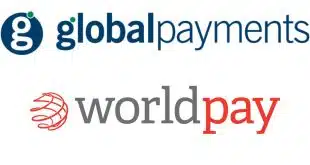The profits rolled in for MasterCard Inc. in the second quarter despite a lackluster performance by the No. 2 payment card network’s U.S. operations. Several portfolio losses hurt MasterCard’s debit results in both the United States and the United Kingdom, though top executives said at a Tuesday morning conference call with analysts that debit posted a solid quarter otherwise. Meanwhile, new MasterCard president and chief executive Ajay Banga refused to speculate on how the new U.S. financial-reform law’s so-called Durbin Amendment, which will regulate debit interchange and force changes in longstanding network card-acceptance rules, will affect the company.
“We just have to wait for the Fed to develop the regulations and for our customers to react,” Banja said, referring to the law’s mandate that the Federal Reserve devise interchange-regulation criteria by mid-2011. “Regardless of the outcome, we still believe the secular shift to electronic forms of payments will continue and that fundamentally, U.S. consumers are not going to go back to cash and check as a result of the Durbin Amendment.”
As it waits for more direction from Washington, MasterCard hopes U.S. debit growth resumes and credit continues a modest recovery. Debit card purchase volume came in unchanged from 2009’s second quarter at $82 billion, and debit purchase transactions slipped 0.6% to 2.11 billion. But factoring out the portfolio deconversions, which include Washington Mutual, now a part of JPMorgan Chase & Co. and going to the Visa brand, processed debit transactions grew about 10%. The U.S. debit card count fell 2.5% to 119 million from 122 million in 2009’s second quarter. Debit’s average ticket was $38.88, up 0.6% from $38.66 a year earlier.
MasterCard chief financial officer Martina Hund-Mejean said debit results would bottom out in the third quarter because of the deconversions. After that, MasterCard expects the lines to start pointing up as new issuers, notably SunTrust Banks Inc. (Digital Transactions News, Jan. 14) but also “others that we have yet to announce,” Hund-Mejean said, begin pumping out MasterCard debit cards.
U.S. credit card results showed little change. Purchases grew 0.8% to $121 billion from $120 billion in the prior-year period, while transactions slipped 1.5% to 1.48 billion from 1.5 billion. The average ticket came in at $82.03, down 8 cents from a year earlier. U.S. credit cards outstanding are down more than 17% to 172 million from 208 million in 2009’s second quarter. Newly risk-averse banks have cut back on card lending and many consumers that still have credit cards aren’t using them, or at least not as much as they once did.
MasterCard’s hotel and airline volumes are up, but spending on fine dining, luxury retail, and furniture is still down in the wake of the recession. “Conflicting signals make it difficult to determine if we have moved into a period of economic recovery,” Banja said.
The bottom line, however, certainly indicated prosperity at MasterCard. Second-quarter net income rose 31.2% to $458 million from $349 million in the same 2009 quarter. Net revenues increased 6.6% to $1.37 billion from $1.28 billion, but MasterCard cut operating expenses by 10.4% to $648 million from $723 million a year earlier.





